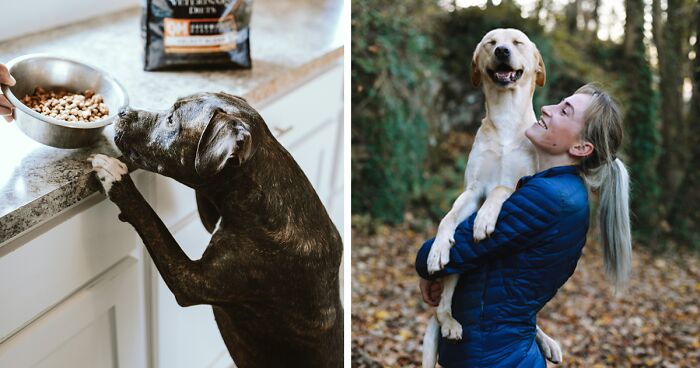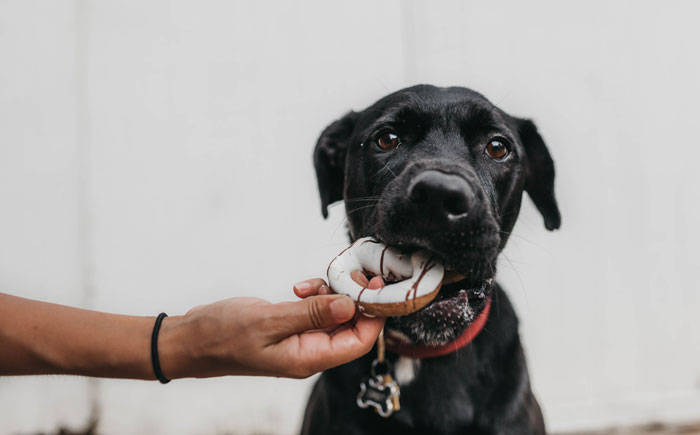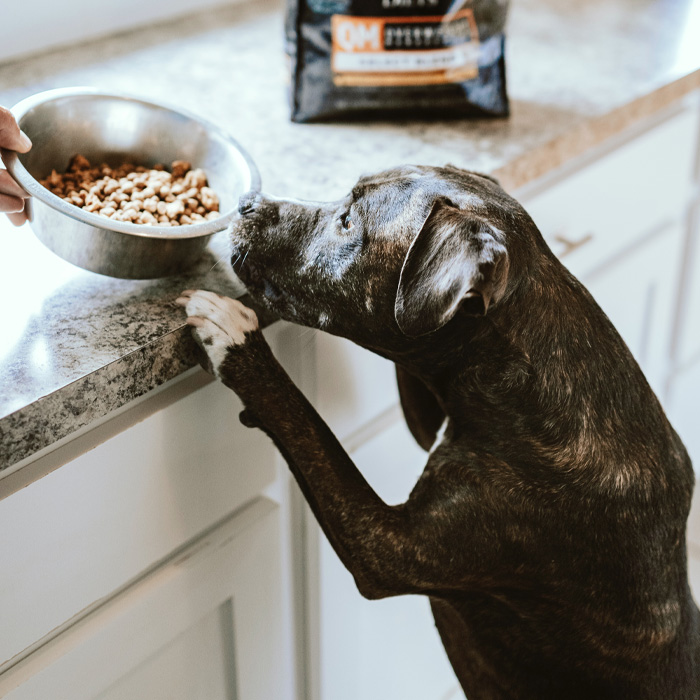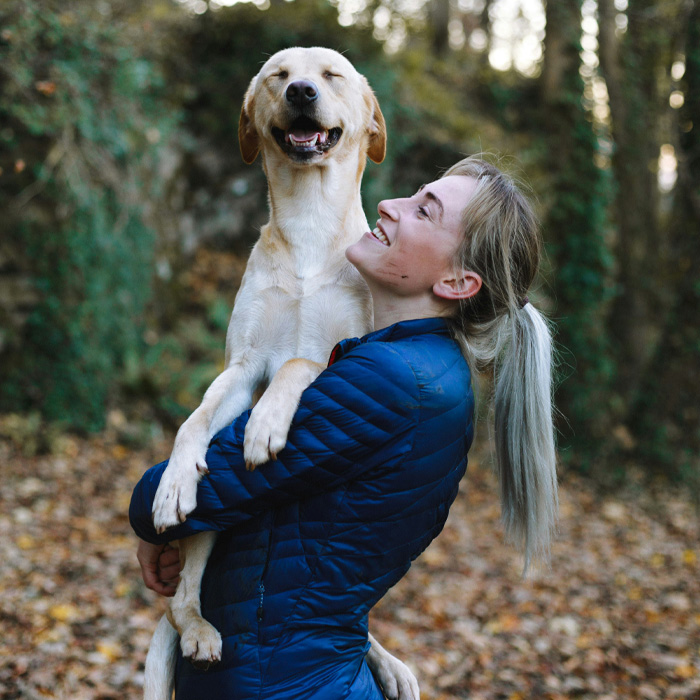Are you a new pet owner looking to step up your dog care game? Or are you a dog parent with years of expertise, still wondering if you’re meeting all your dog’s needs? As a pet owner, it’s common to worry about providing the best care for your beloved companion.
So, what do dogs truly need? In this article, we’ll explore the essential components of dog care. From proper nutrition and exercise to training and social bonding, we’ll guide you through the journey of meeting your dog’s needs. Get ready to unleash a happier, healthier life for your best friend!
- Dogs need shelter, food, water, and regular exercise for well-being.
- A balanced diet and fresh water are key essentials for health.
- Regular grooming sessions are crucial to maintaining hygiene.
- Emotional needs include love, security, and positive interactions.
- Mental stimulation through training enhances a dog's life.
The information provided herein is for informational purposes only. Please refer to our disclaimer for more details..
The basics: What do dogs need?
Image source: Camylla Battani
Whether you have a puppy or an adult dog, the bare minimum for dog care is the same. Every dog needs shelter, food, and water. However, these essentials are just the starting point in caring for a dog. More than just basic dog care, dog owners should provide a life of health and happiness for their pooch.
If you want your dog to thrive, you must also provide it with regular exercise, a well-rounded diet, healthcare, social interaction, and a sense of security. Most importantly, your pet should feel loved and see you as its safe place.
What supplies are needed to take care of a dog?
Since pet care can seem overwhelming, let’s start with the basics! Here is a list of things that you need to get to make sure that your dog is properly cared for. To make it easy for you, we’ve grouped them into different categories!
Everyday Essentials
- Food and water bowls
- Food storage container
- Quality food
- Water
- Dog bed
- Blanket
- Crate or Kennel
- Collar and Leash
- Toys
Supplies for health and hygiene:
- Dog shampoo and towel
- Grooming supplies
- Dog toothbrush/toothpaste
- Carrier (for small dogs)
- Poop bags
- Cleaning solution
- First aid kit
- Veterinarians contact
Miscellaneous supplies
- ID tags
- Car seat covers
- Dog clothing
While this list covers the basic things needed to keep your canine happy, every dog and owner is unique. Feel free to adapt and personalize it according to your dog’s specific needs and your lifestyle.
Physical needs of dogs
Image source: Chewy
Like humans, dogs have essential physical needs. These include a balanced diet, water, regular exercise, and proper grooming. Dogs also need to be given a place to rest. Let’s look into each of these needs.
Feeding and Hydration
Dogs thrive when given a healthy, balanced diet. According to the American Kennel Club, a healthy, well-balanced diet for your dog must include whole-food ingredients that provide the eight essential nutrients. These include protein, fats and fatty acids, carbohydrates, fiber, vitamins, minerals, and water.
There are many things to consider when planning feeding for your dog. These include frequency, portion size, and the type of food you offer. In most cases, many dog owners feel anxious about picking the right food. If this sounds like you, consult your veterinarian or a pet nutritionist about your pet’s dietary needs.
Hydration is also important for maintaining your dog’s health. Water is needed in dogs for almost all metabolic processes, especially in digestion and thermoregulation. So, ensure your dog has access to fresh water at all times.
Regular exercise
All dogs need exercise, regardless of age or breed. Your dog needs exercise to burn excess energy, keep fit, and for mental stimulation. Activities like walks, playtime, and interactive games contribute to your dog’s life being a long, happy, and healthy one.
Exercise is also important for dogs because it helps them release pent-up energy. This prevents them from developing destructive behaviors in an attempt to cure boredom.
In general, the amount of exercise your dog needs depends on its age, breed, and energy level. For example, according to Hepper, puppies need more exercise because they generally have more energy than adult dogs. Hence, you need to consider all these factors before setting up an exercise routine for your pup.
Shelter
You should create a safe living space for your dog, be it indoors or outdoors. You could do this by setting up a crate or a doggy bed in a designated area of the house or keeping a kennel outside. Whatever housing form you decide on, make sure that it provides adequate protection from extreme weather conditions and that your dog actually feels safe in it.
Grooming and hygiene
Regular grooming is crucial for keeping your dog clean and maintaining its hair coat. This includes bathing, brushing, nail trimming, ear cleaning, and brushing your dog’s teeth. According to Better Vet, on average, a dog needs to be bathed every few weeks.
Emotional needs of dogs
Image source: Humphrey Muleba
Dogs are emotional animals that need love, attention, and social interaction. It’s important to create a supportive environment in which your dog feels safe and secure. According to the Hierarchy of Dog Needs, inspired by Linda Michaels, the emotional needs of dogs include love, security, trust, consistency, and benevolent leadership.
Your dog wants to know that you care about it. You can provide this kind of atmosphere by spending time together and offering affectionate gestures like petting your dog. Another way of bonding with your dog is by responding positively when your dog shows affection.
Healthcare essentials for dogs
As responsible dog parents, it’s our duty to keep our companions healthy. Some of the best ways to do this are by vaccination and providing our pets with regular veterinary care. These are vital to ensure your dog’s health.
Additionally, it’s important to prevent parasites like fleas and ticks. By incorporating preventive measures against these pests, you’re contributing to your dog’s overall well-being. Some owners also choose to neuter or spay their pets to prevent unwanted litter, prolong their lives, and reduce aggressive behavior.
Social needs of dogs
Dogs are social animals that thrive on companionship. As pet owners we should meet their social needs involves providing ample opportunities for socialization and engagement. You can do this by organizing playdates, enrolling in doggy day care, or even through regular walks in the neighborhood.
Neglected dogs may be poorly socialized, and this could lead to behavior problems. Engaging in social interactions helps dogs learn appropriate behavior, develop their social skills, and prevent behavioral issues caused by boredom.
Mental stimulation and dog training
Providing mental stimulation through games, training, and interactive toys is essential to keep your dog’s mind active and engaged.
Training is a fundamental aspect of a dog’s mental stimulation. It enhances their learning abilities, strengthens their bond with you, and encourages good behavior. Training is also great because it gives dogs a sense of accomplishment. Common training cues that every dog should learn include sit, stay, heel, look, come, and of course, emergency recall.
Positive reinforcement training methods are effective in teaching your dog good behavior and manners. Reward your dog with treats, praise, or playtime when they follow the rules. In the case of bad behavior, don’t punish your dog. Instead, redirect their attention to an acceptable behavior or location. For instance, if they jump on the couch, guide them to their designated bed.
Conclusion: What your pet really needs
To keep your dog healthy and happy, it’s important to meet their basic needs, provide love and care, and ensure their physical, emotional, and mental well-being. Being a responsible pet owner means understanding and fulfilling these needs to give your dog a fulfilling and joyful life.
Frequently asked questions
What does my dog need daily?
Daily, your dog needs a balanced diet, regular exercise, grooming, social interaction, and mental stimulation to keep them healthy and happy. You should also monitor them for any changes in behavior, appetite, or physical condition.
What are the signs of illness in pets?
Signs of illness in pets may include changes in appetite, energy levels, or behavior. You may also see symptoms like vomiting, diarrhea, or lethargy. Regular veterinary check-ups can help in early detection and treatment of underlying health issues.
268views
Share on Facebook
 Dark Mode
Dark Mode 

 No fees, cancel anytime
No fees, cancel anytime 

















































-1
0